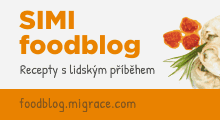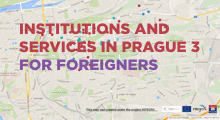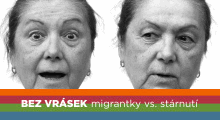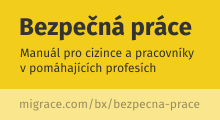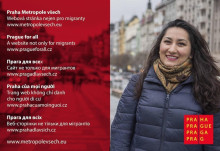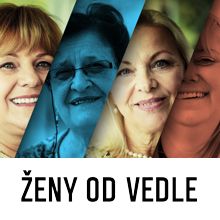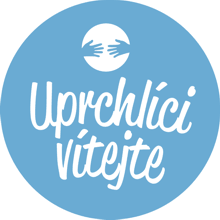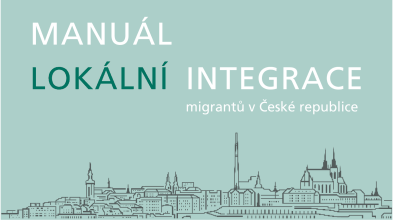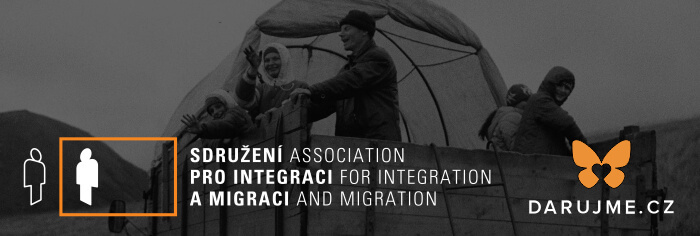About the project
Within the project, SIMI was realising several key activities which we would like to present. You can always find up-to-date information about our activities in our project Bulletins.
Legal and social counselling - counselling performed by SIMI workers mainly involves providing information relevant to the client’s personal situation. In social counselling, the information provided is mainly in the area of employment (formulation of a professional CV, tracking job listings, searching for realistic re-qualification opportunities), related issues of social provision, education, healthcare, mediation of contacts or specialised facilities, interpreter, psychologist, etc. Legal counselling focuses in particular on labour law issues, but also involves answering legal questions regarding illegal work on the territory of the Czech Republic and ways to avoid it, assistance in matters of administrative and judicial proceedings related to employment, and the rights of labour migrants in the areas of social provision, healthcare, education, access to services and discrimination. Counselling is also focused on members of vulnerable groups of migrants on the labour market. In order to achieve social integration and to make the services provided more effective, the counselling is conceived in such a way so as to provide a fast, qualified and individually tailored transfer of information to clients. For more information, please contact our legal or social department.
Roundtables - we organise meetings to discuss possible cooperation between non-profit organisations, labour offices and institutions relevant to the process of integrating foreigners on the labour market in the Czech Republic. Read more about individual meetings and topics in the Roundtable section.
Seminars for foreigners – as part of the project, we are preparing one-day seminars for foreigners on the topic of issues in labour-law relations and entrepreneurship. The goal of these seminars is to acquaint foreigners with their social rights and opportunities for exercising them, as well as with other issues related to employment (the activities and powers of labour offices, the rights and obligations of employers, work contracts, basic labour law, unemployment and other benefits, work permits, etc.). These seminars also include interactive practice of individual forms of preparation for entering the labour market, such as e.g. transacting with employees of the labour office, filling in the relevant forms, practice job interviews and compiling a professional CV. Participants in seminars receive a confirmation of attendance. For more information, please contact the head of the social department, Pavel Duba, on duba@refug.cz.
Campaign focused on domestic workers - female foreigners from third countries working in the Czech Republic are often employed in households as maids, caregivers or nannies. This is a quite special – and in its character new – segment of the labour market, and is a phenomenon of recent years which no one has addressed thus far. Female foreigners working in Czech households are often pressured to perform illegal work, as this is immeasurably more advantageous for their employers, without taking into account the risks to which they are exposed and could be exposed in the future. We therefore focus first and foremost on informing these foreigners and the public at large about this issue. You can find more information about the campaign and its individual activities in the Domestic Worker Campaign section.
Scholarly publication – as part of the project, we are preparing a scholarly publication on the role of the non-profit sector in the process of social integration of labour migrants in the Czech Republic. In its theoretical section, the publication will include an analysis of labour migration in the Czech Republic in a broader context with a focus on the state of social integration of labour migrants in the Czech Republic, their rights and status on the Czech labour market, the client system, employment agencies, the issue of illegal work and its prevention, and an analysis of fundamental questions in the area of labour migration in the European context. The publication’s practical section will contain a comparison of how the non-profit sector operates in the area of labour migration in the countries represented in the project, with an emphasis on the cohesion of their activities with labour offices and other entities in Portugal and Austria, and on the resulting suggestions and impulses for creating and developing such a form of cooperation in the Czech Republic. This section will also address the current status of Czech NGOs in the process of social integration of labour migrants generally, their services for target groups and their future prospects in this area. The publication will contain legislative and other recommendations, in particular with a view to ensuring that labour offices function in such a way so as to contribute to easing the social integration of foreigners on the territory of the Czech Republic in the future from the point of view of the labour market.
Publication to download is available here /in czech only/
Documentary film – one of the project’s important activities is the production of a documentary film intended primarily for the Czech expert and lay public. The film will focus on the topic of labour migration by foreigners from third countries to the territory of the Czech Republic, and draws attention to problematic moments in the social integration of this target group. It will also contain a section concerning the role of the non-profit sector in this process and its ability to exercise influence, whether by communicating with labour offices or assisting victims of illegal conduct on the part of employers or various intermediaries. This will be up-to-date material, illustrating the transformation of labour migration as a function of the economic situation in the host country, the needs of the Czech labour market, and the possibilities of the non-profit sector with respect to labour migrants as a group threatened by social exclusion. More about the documentary you can find here


